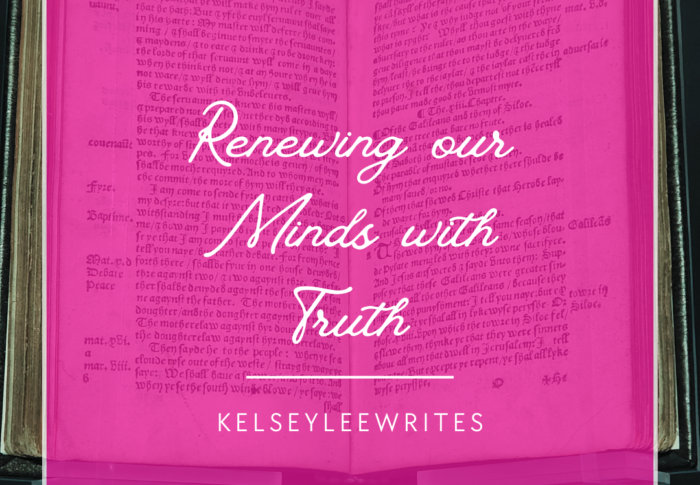
When Your Questions Have No Answers
I’ve always found Job to be a difficult book to read. The start of the book explaining Job’s predicament and the part where God tells Job how awesome He is and where Job’s life is restored to him is great and interesting to read. But all that back and forth between Job and his friends? I always found that to be discouraging and confusing. Listening in on Job’s depression was not my favorite read in the Bible.
Recently, I’ve gotten a new perspective on the book of Job. As I’ve walked through an unexpected trial in my life, I’ve felt my heart drawn to this book of suffering. Not because I love the topic of suffering, but because suddenly Job’s questions and raw emotions made sense. Granted, I’ve never lost my entire family and property all in one day, but I know what it’s like to ask God why, over and over, and to hear no answer. The question “why” actually shows up in Job 19 times.
20 “Have I sinned? What have I done to You, O watcher of men? Why have You set me as Your target, So that I am a burden to myself? 21 “Why then do You not pardon my transgression And take away my iniquity? For now I will lie down in the dust; And You will seek me, but I will not be.” Job 7:20-21 (NASB)
20 “Why is light given to him who suffers, And life to the bitter of soul, 21 Who long for death, but there is none, And dig for it more than for hidden treasures, 22 Who rejoice greatly, And exult when they find the grave? 23 “Why is light given to a man whose way is hidden, And whom God has hedged in? Job 3:20-23
Job’s questions are understandable. Why would the Lord allow such suffering? After all, the Lord Himself called Job a blameless man (see Job 1:8). As readers, we know that God allowed Satan to test Job, but Job himself did not know the why behind his pain. Job’s friends tried to find an answer; they assumed Job must have done something wrong to deserve this suffering. They believed that if you are good, you will be blessed, and if you are bad, you will be punished (Job 4:7-9; 6:24-30; 8:3-7; 11:13-20). However, this type of thinking is a form of prosperity gospel. This idea that we can control God’s blessings by our own good behavior is much like a belief in karma, and it is not biblical. Sometimes we suffer because we are experiencing the consequences of our own sin or the sins of those around us. From Job’s story itself, we see that sometimes suffering happens because God is testing us or because of spiritual warfare. Sometimes suffering happens unjustly because we live in a fallen world and will be persecuted for following Jesus. And all suffering happens as a result of living in a fallen world that has been marred by sin. This world is not how it was meant to be, and until the Lord brings a new heaven and new earth, we will continue to experience pain, tears, and heartbreak. The godly will continue to experience persecution, the consequences of sin will continue to be experienced, and sickness will continue to attack our bodies. This world is broken. But praise God it will not always be this way! We have hope that one day, God will dwell among us “and He will wipe away every tear from their eyes; and there will no longer be any death; there will no longer be any mourning, or crying, or pain; the first things have passed away.” (Revelation 21:4).
Not only does Job teach us that prosperity-gospel type thinking is false, it also points out that we don’t always know what God is doing.
8 “For My thoughts are not your thoughts, Nor are your ways My ways,” declares the Lord. 9 “For as the heavens are higher than the earth, So are My ways higher than your ways And My thoughts than your thoughts. Isaiah 55:8-9
33 Oh, the depth of the riches both of the wisdom and knowledge of God! How unsearchable are His judgments and unfathomable His ways! 34 For who has known the mind of the Lord, or who became His counselor? 35 Or who has first given to Him that it might be paid back to him again? 36 For from Him and through Him and to Him are all things. To Him be the glory forever. Amen. Romans 11:33-36
Job asked God why, why, why? But God didn’t answer the why; instead, God told Job who He was.
Then the Lord answered Job out of the whirlwind and said, 2 “Who is this that darkens counsel By words without knowledge? 3 “Now gird up your loins like a man, And I will ask you, and you instruct Me! 4 “Where were you when I laid the foundation of the earth? Tell Me, if you have understanding, 5 Who set its measurements? Since you know. Or who stretched the line on it? 6 “On what were its bases sunk? Or who laid its cornerstone, 7 When the morning stars sang together And all the sons of God shouted for joy? Job 38:1-7
God goes over His mighty acts of creation, pointing out that even the strongest creatures of the world, like Leviathan and Behemoth, are subject to Him. God makes it clear to Job that He knows all things—Job doesn’t. And sometimes, that’s what we need to hear. It’s a hard pill to swallow to realize that God doesn’t always tell us why He allows something in our lives. It’s humbling to admit that God knows all things, and we don’t. But that is also a blessing. We don’t have to carry the burden of knowing all things; instead, we are given the yoke of Christ, of trusting Him in all things, even when we don’t understand. And this burden is light (Matthew 11:28-30).
So, when we don’t have answers to our questions, what can we take comfort in? We can take comfort knowing that the Lord sees and hears our pain.
You have taken account of my wanderings; put my tears in Your bottle. Are they not in Your book? Psalm 56:8
Jesus wept. John 11:35
Our Lord has compassion for our pain. Eight times in the gospels, we are told that Jesus was moved by compassion for the people He interacted with. He even cried with Mary over the death of Lazarus, even though He knew that a few minutes later He would raise Lazarus back to life. How amazing to know that the Lord keeps our tears in His bottle, that He knows every one of them, that in His book are written our sorrows. What a caring Father we have.
For we do not have a high priest who cannot sympathize with our weaknesses, but One who has been tempted in all things as we are, yet without sin. Therefore let us draw near with confidence to the throne of grace, so that we may receive mercy and find grace to help in time of need. Hebrews 4:15-16
Jesus understands our suffering. Of anyone in history, He truly suffered unjustly. A holy and righteous
Man was falsely accused, condemned to die, and crucified in order that He might bear the wrath of God on behalf of a sinful people who deserved no ounce of grace and yet were bought by His blood to become children of God. If anyone can understand our pain, it is our High Priest, our Savior who made a way for us to come before the throne of grace with confidence. So, in our suffering, in our unanswered questions, let’s go before His throne and seek the mercy and grace we need, knowing that our loving Savior is there to hear, that our Heavenly Father will keep our tears, and that our compassionate Savior will surely be our Comfort and Healer.
With love,
Kelsey






Comments
A wise lesson that many of us have to learn over and over. Thankful that you see and understand the beauty of Jesus understanding your hurts. Thank you for sharing what you learn. I always learn so much from you.
Praise God!